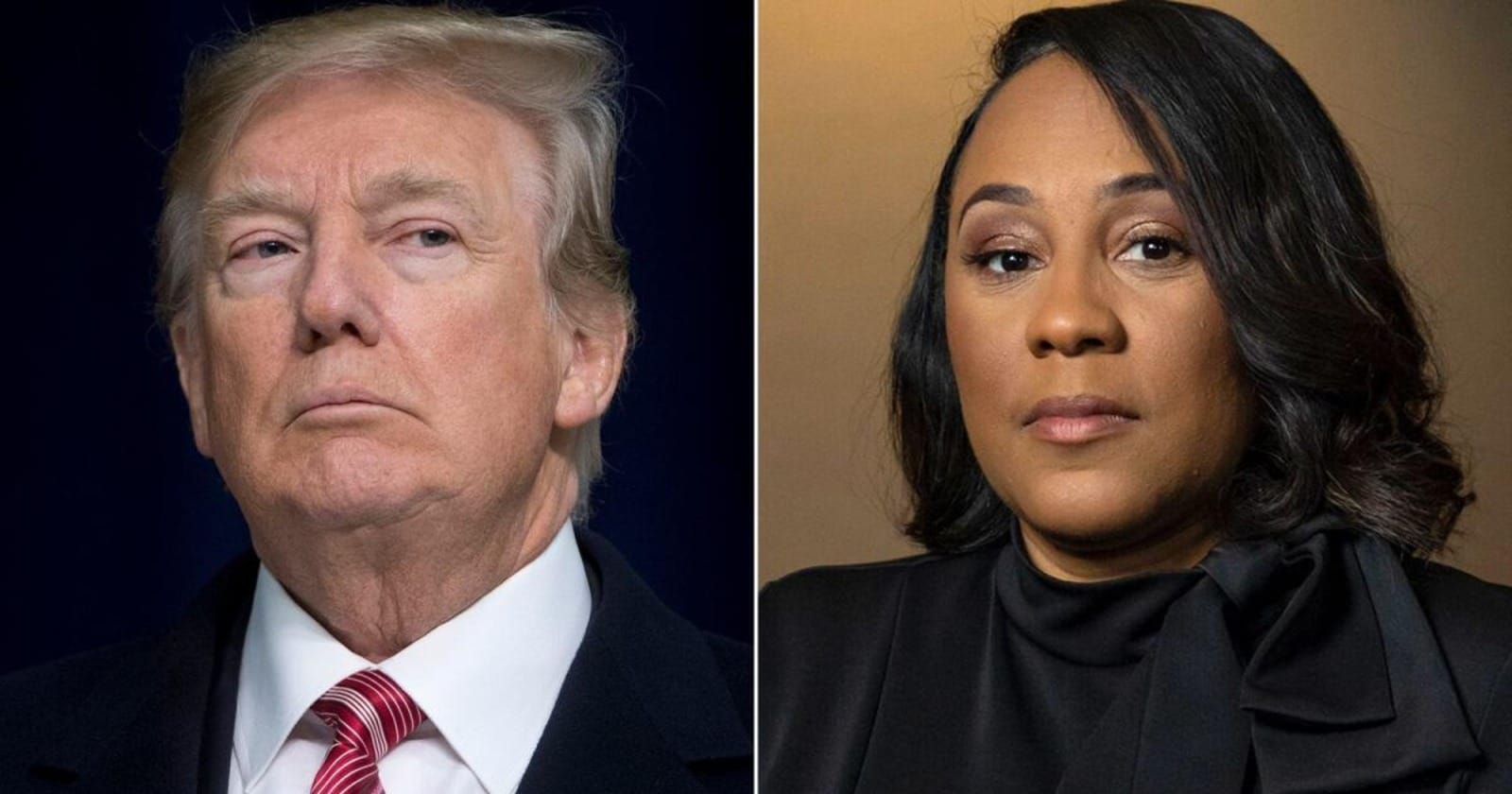OPINION: This article may contain commentary which reflects the author's opinion.
A state judge in Georgia on Monday issued an order that limited what former President Donald Trump can say on social media about his case.
Fulton County Superior Judge Scott McAfee signed an order that bars Trump from contacting any of the 18 co-defendants in the case except through their attorneys. Also, the order “bans the former president from intimidating co-defendants or witnesses in the case, including through posts on social media,” The Hill reported.
The order says: “The Defendant shall perform no act to intimidate any person known to him or her to be a codefendant or witness in this case or to otherwise obstruct the administration of justice.”
It adds: “The above shall include, but are not limited to, posts on social media or reposts of posts made by another individual on social media.”
The Hill added:
The former president and 18 others were charged last week in Fulton County, Ga., for their actions related to alleged efforts to overturn the 2020 election in the state. The defendants have until Friday at noon to voluntarily surrender themselves.
The order also set a $200,000 bond for the former president alongside its warning to not intimidate co-defendants or the witnesses. This order was more detailed than other bond orders the judge signed for some of the other co-defendants Monday, clearly outlining that Trump’s ban includes social media posts and an “indirect threat of any nature.”
Last week, a federal judge warned former President Donald Trump about making “inflammatory” statements about his case in public.
U.S. District Judge Tanya Chutkan of the D.C. District said such comments would cause her to speed up his trial after being charged with conspiracies related to the 2020 election by special counsel Jack Smith.
“I caution you and your client to take special care in your public statements about this case,” Chutkan told Trump’s attorney John Lauro during a hearing. “I will take whatever measures are necessary to safeguard the integrity of these proceedings.”
Chutkan’s strong warning came as she concluded her initial courtroom session in the most recent criminal lawsuit involving the former president. The purpose of the hearing was to address disagreements between special counsel Jack Smith’s prosecuting team and Trump’s legal representatives regarding the management of evidence in the case, Politico reported.
After Chutkan laid out conditions of a “protective order” concerning evidence, prosecutors have indicated their readiness to provide Trump’s team access to millions of pages of documents, which would accelerate the case’s progress and set it on a trajectory toward trial.
Following the proceedings, Chutkan ruled that while it was close, the government did not convince her that all information regarding the case should be restricted, Fox News reported.
“Chutkan heard arguments about the restrictions on evidence in the case. In court filings, prosecutors had argued for broad rules baring Trump’s lawyers from sharing ‘sensitive’ materials with the former president, including witness testimony to the grand jury and recordings and transcripts of Trump associates who spoke to prosecutors,” the outlet reported.
“Trump’s attorneys countered that the government’s request was too broad and infringed on Trump’s First Amendment rights,” the network continued, adding:
In a “close” decision, Chutkan said she was not persuaded that the government has shown all information gathered in the case would fall under the protective order. She ruled that only information designated as “sensitive” should be protected.
“The defendant has the right to free speech, but that right is not absolute,” Chutkan said as the hearing began. “Without a protective order, a party could release that info to the jury pool.”
Thomas Windom, a prosecutor on Smith’s team, argued before Chutkan on Friday that the restrictions were vital to prevent the “improper dissemination of materials … including to the public.”
“The defendant has set forth an intention to set forth any information that they deem informative,” Windom told the judge.
“Defense has broadcast their strategy, and that is not to try this case in this courtroom, and your honor should address that,” he added.
